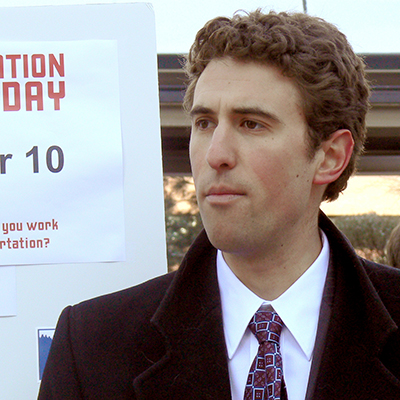
Four Reasons the Consumer Watchdog Should Not Be Disconnected on Telecom Issues
The Office of Consumer Counsel (OCC) is Colorado’s Consumer Advocate on gas, electric and telecommunication issues that go before the Public Utilities Commission (PUC). It’s the only entity whose sole mission is to advocate for consumers.
Since 1984, the OCC has saved consumers a total of $1.7 billion in gas, electric and telephone cases. For every $1 spent, they have saved consumers $30. They are experts and ask the tough questions – are rate increases justified, are consumers getting value and reliability out of the services they pay for, are there anti-consumer practices that need to stopped.
SB15-271 proposes to eliminate the OCC from telecommunication cases. Here are four reasons why this is bad for Colorado consumers.
- Millions of Dollars Left in High Cost Fund – The high cost fund was set up to help telephone companies provide phone service in costly, mainly rural areas. It is funded by a fee on landline telephone bills. The pool of money is capped at $54 million. Telephone companies apply to the PUC for the money. There is no evidence the high cost fund will be spent down in the next year. Removing the OCC from telecom issues means consumers will no longer have a watchdog to question whether proposals to take consumer dollars from the high cost fund are justified and warranted.
- Major Review of Landline Deregulation in 2018 – Pursuant to legislation passed by the Legislature last year, telephone landline service is going through an expansive deregulation process. In 2018, the PUC will review the results of deregulation and determine if rates are unacceptably high or service s unacceptably poor. Just as it has for 30 years, the OCC will have an important role in bringing the consumer voice to the PUC proceedings.
- Monitor 9-1-1 Surcharges and Service Upgrades – State law requires that any local 9-1-1 governing body that proposes to charge consumers more than $.70 on their telephone bill for 9-1-1 services must get approval from the PUC. Currently, 53 of the 57 governing bodies are at or above this threshold. Historically, these fees have risen over time. In addition, new technological upgrades allow communities to improve 9-1-1 service, which will likely cost more money. Just as it has for 30 years, the OCC will have an important role in asking the tough questions to ensure residents are getting appropriate value from these upgrades.
- Public Utilities Commission System Undermined – Similar to a judge in a judicial system, the PUC is charged with impartially balancing the interests of all parties involved with issues before them – consumers, businesses, local government, etc. For 30 years, the consumer voice has been represented by the OCC. For 30 years, this system worked. Removing the OCC undermines the PUC system either by pushing the PUC itself into the role of both impartial judge and consumer advocate OR by simply removing the consumer voice completely. This undermines the integrity and effectiveness of PUC cases moving forward.
The Office of Consumer Counsel asks the tough questions to ensure any proposal before the PUC is justified and warranted. They play a critical role in stopping waste and abuse. The PUC still retains a legal role on telecommunication issues. Removing the OCC from those cases undermines the integrity of the system and removes a consumer watchdog from reviewing proposals to ensure they are warranted and justified.
Reauthorize the Office of Consumer Counsel with the ability to participate in all gas, electric and telecommunication cases that appear before the PUC.
Authors
Danny Katz
Executive Director, CoPIRG
Danny has been the director of CoPIRG for over a decade. Danny co-authored a groundbreaking report on the state’s transit, walking and biking needs and is a co-author of the annual “State of Recycling” report. He also helped write a 2016 Denver initiative to create a public matching campaign finance program and led the early effort to eliminate predatory payday loans in Colorado. Danny serves on the Colorado Department of Transportation's (CDOT) Efficiency and Accountability Committee, CDOT's Transit and Rail Advisory Committee, RTD's Reimagine Advisory Committee, the Denver Moves Everyone Think Tank, and the I-70 Collaborative Effort. Danny lobbies federal, state and local elected officials on transportation electrification, multimodal transportation, zero waste, consumer protection and public health issues. He appears frequently in local media outlets and is active in a number of coalitions. He resides in Denver with his family, where he enjoys biking and skiing, the neighborhood food scene and raising chickens.
